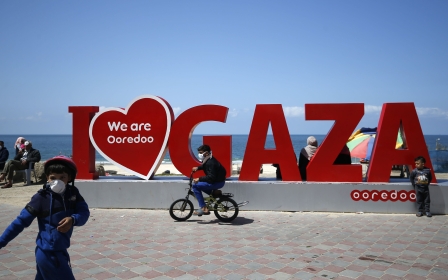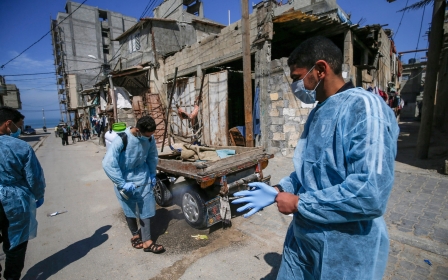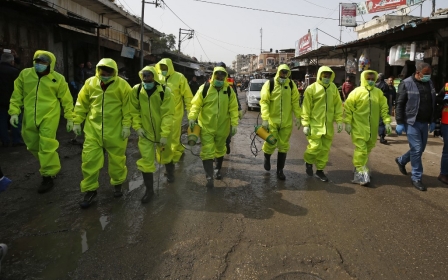Coronavirus: Rights groups to hold virtual rally to demand end of Gaza siege
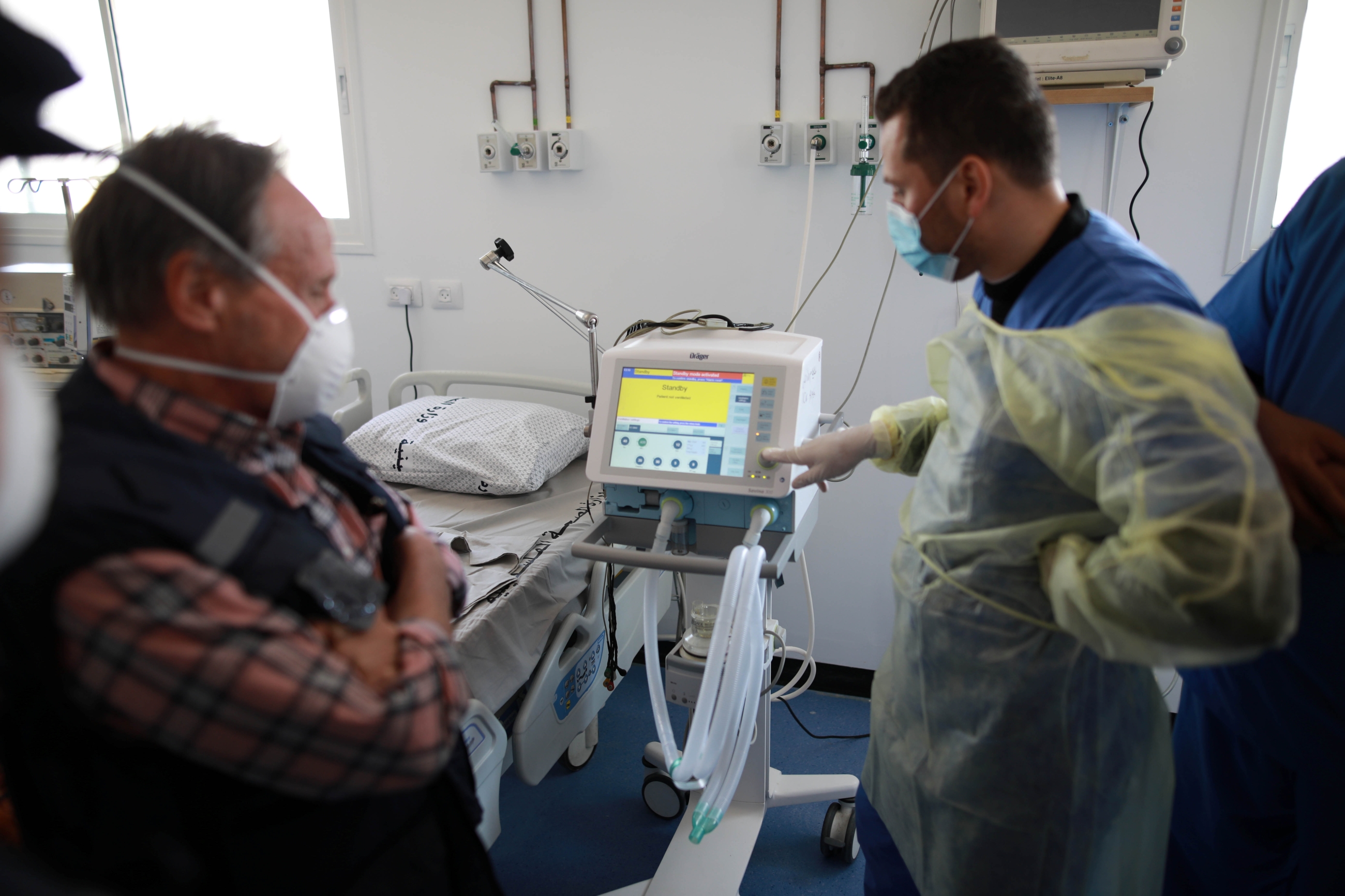
As coronavirus cases steadily increase in the Palestinian territories, activists and civil rights organisations are warning that unless Israel lifts its debilitating blockade on Gaza, millions of Palestinians may be at risk.
Israel's 13-year blockade on Gaza has devastated day-to-day life for ordinary Palestinians, with 70 percent of the enclave's youth unemployed and the health-care system near collapse.
So far, Gaza has recorded only nine cases of Covid-19, but a coalition of rights groups told Middle East Eye they will be holding an online rally on Monday to highlight the threat posed to the two million Palestinians stuck in the strip.
'Now is the time to demand the Israeli government to take responsibility and lift its inhuman blockade'
- IfNotNow, an American Jewish progressive activist group
The BDS National Committee, Jewish Voice for Peace and three others said they would be holding an online rally and Twitterstorm, because street protests could be a potential breeding ground for the virus.
"As Gaza reports its first cases of the coronavirus, and its health-care system is decimated by Israel's 13-year blockade, it's important to show up however we can," Sonya Meyerson-Knox, Media Program Manager at JVP, told Middle East Eye.
New MEE newsletter: Jerusalem Dispatch
Sign up to get the latest insights and analysis on Israel-Palestine, alongside Turkey Unpacked and other MEE newsletters
IfNotNow, an American Jewish progressive activist group, also created a petition to demand Israel lift its blockade and deliver much-needed medical supplies to Gaza.
"The international community has ignored the humanitarian crisis facing Palestinians in Gaza for too long. Rather than waiting to react to the coronavirus hitting Gaza, we must be proactive," IfNotNow said in a statement.
'Not everyone has the opportunity to not work'
The latest reports coming out of the occupied West Bank and Gaza show a total of 84 confirmed cases, nine of them from Gaza.
Seven new cases were reported in Gaza in the past 24 hours, causing fears that the disease may spread quickly in what is referred to by humanitarian groups as "the world's largest open-air prison".
Aisha Mansour, director of the West Bank program for Medical Aid for Palestine (MAP), said that cases of the virus are coming from labourers returning from work in Israel, as well as from those travelling abroad coming home.
The Israeli government has recently advised labourers to stay in Israel instead of travelling between Israel and Palestine.
"These accommodations for these Palestinian workers is unknown," Mansour said in a Facebook live session with JVP.
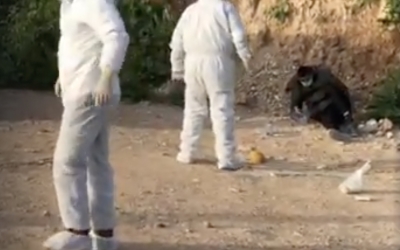
There have been cases of Palestinian workers who showed symptoms, then were just dropped at an Israeli checkpoint without notifying proper authorities.
Middle East Eye reported last week that a Palestinian labourer working in Israel was dumped on the side of a road outside an Israeli checkpoint after showing symptoms of Covid-19. He later tested negative for the virus.
As countries around the world are advising their citizens to not leave their homes and to work remotely from their offices, for many Palestinians this is impossible.
"Not everyone has an opportunity to work from home, not everyone has the opportunity to not work. And that's the biggest problem with the Palestinian labourers," Mansour said.
Palestinians living in Gaza have been under an Israeli blockade since 2007, but Israel's suffocation of the strip long predated the siege.
The United Nations said in a report in 2012 that conditions in Gaza would become unlivable by 2020.
Even as health officials have advised that one of the best ways to curb the spread of the virus is to wash your hands, this is becoming increasingly difficult in the Gaza Strip, where only one in 10 households have access to clean water, according to Unicef.
"Now is the time to demand the Israeli government to take responsibility and lift its inhuman blockade," IfNotNow said.
Middle East Eye delivers independent and unrivalled coverage and analysis of the Middle East, North Africa and beyond. To learn more about republishing this content and the associated fees, please fill out this form. More about MEE can be found here.


